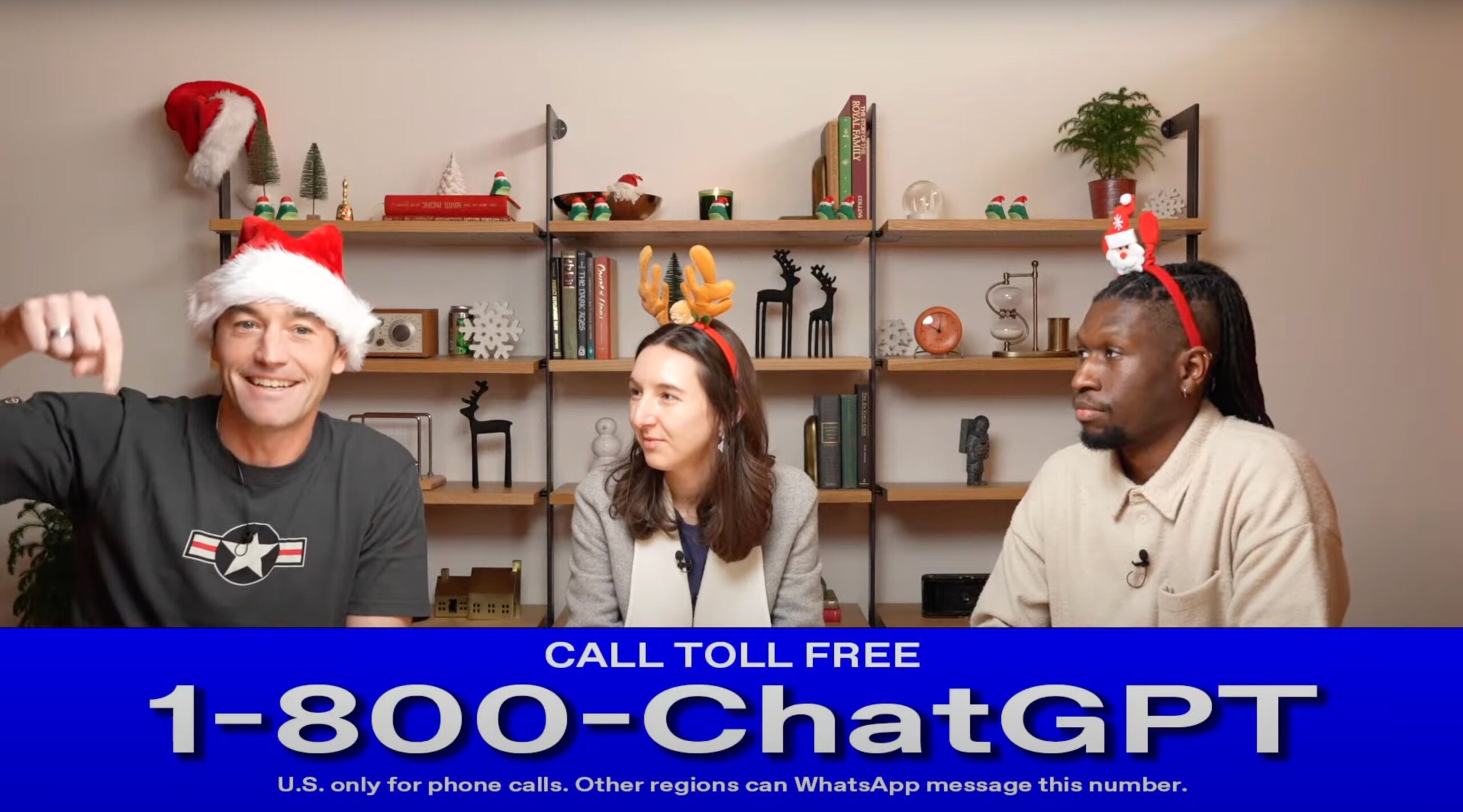
ChatGPT is making its way to landlines, a bold move by OpenAI to expand access to its AI assistant. Starting Wednesday, users in the U.S. can dial 1-800-CHATGPT (1-800-242-8478) and interact with the conversational AI over the phone. This service offers 15 minutes of free usage per phone number per month, with standard carrier fees potentially applying.
OpenAI Chief Product Officer Kevin Weil announced the launch during a livestream, highlighting the initiative’s focus on accessibility. “Our mission at OpenAI is to make artificial general intelligence beneficial to all of humanity, and part of that is making it as accessible as possible to as many people as we can,” Weil said.
This new feature mirrors ChatGPT’s Advanced Voice Mode, providing real-time conversational capabilities without multimodal inputs like images. Users can ask questions, request translations, and explore other functions directly via phone. OpenAI emphasized that this simplified experience is ideal for newcomers to AI who want a low-cost, familiar way to try out the technology.
Additionally, OpenAI introduced ChatGPT on WhatsApp for global users, enabling text-based conversations without needing an account. However, daily limits apply, and those looking for unrestricted interactions are encouraged to use the dedicated ChatGPT app or desktop version. Future updates for the WhatsApp feature may include image analysis and web search, though no timeline was provided.
The phone service uses OpenAI’s Realtime API, while the WhatsApp integration is powered by GPT-4o mini via the WhatsApp API. These tools aim to provide straightforward access to AI without overwhelming users with advanced features or costs.
Weil revealed that this feature originated from a hack week project. “The team built this just a few weeks ago, and we loved it. They hustled really hard to ship it, and it’s awesome to see it here. We’re just getting started making ChatGPT more accessible to all of you,” he said.
A Nod to the Past
This effort draws comparisons to Google’s 2007 launch of GOOG-411, a voice directory assistance service that offered free access to users. At the time, some speculated the service might have also been designed to collect diverse speech samples to advance Google’s speech recognition capabilities. While Google never officially stated this as its primary goal, Marissa Mayer, then Google VP, hinted at its value for training speech models. The service was discontinued in 2010, possibly signaling it had achieved its objectives.
In contrast, OpenAI explicitly stated it will not use the phone calls made to 1-800-CHATGPT to train its large language models, setting a clear boundary regarding data usage.
This telephone-based interface provides a practical option for those who don’t rely on apps for every task in their lives. It offers a straightforward way to interact with AI, removing barriers of installation or account setup. However, users should be aware that while ChatGPT can be highly informative, it isn’t perfect. Users should verify important details, as AI responses occasionally include errors.
By bringing ChatGPT to phones and platforms like WhatsApp, OpenAI underscores its commitment to making AI more accessible while providing diverse entry points for users worldwide.
Featured Image courtesy of OpenAI
Follow us for more tech news updates.
Source: https://digitalmarketreports.com/news/31161/openai-brings-chatgpt-to-landlines-and-whatsapp/
